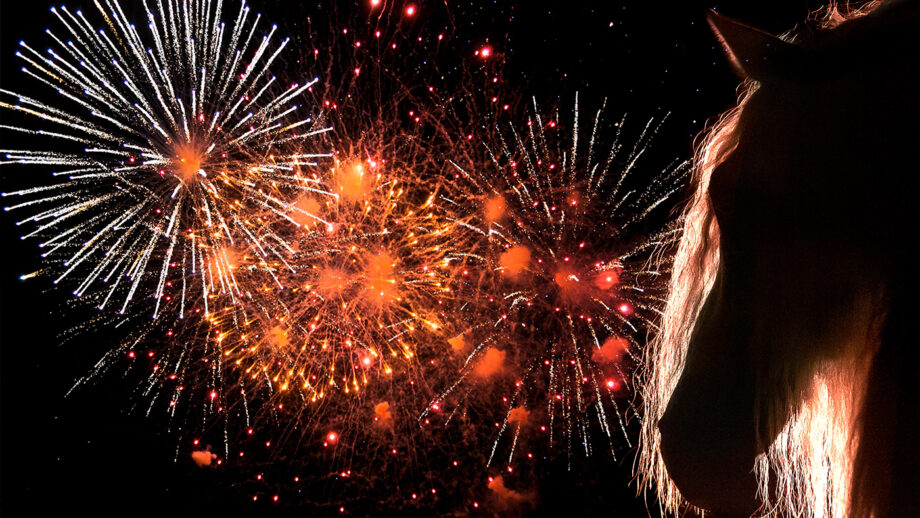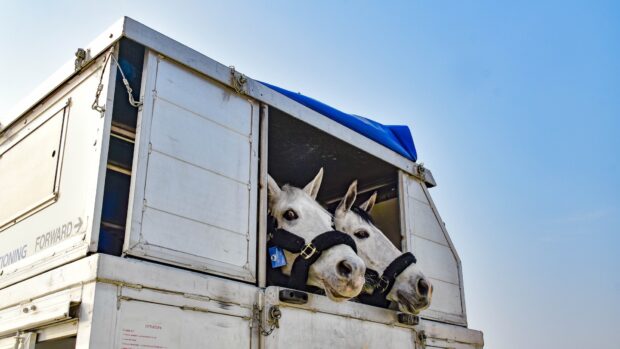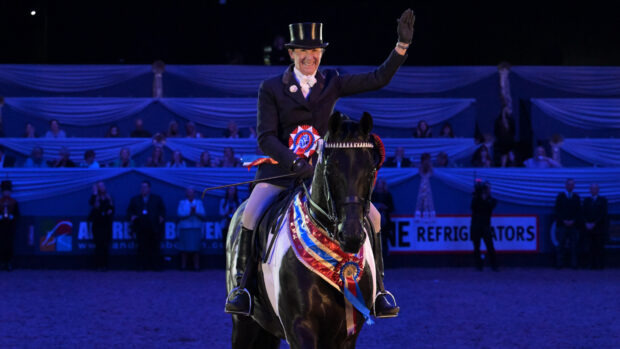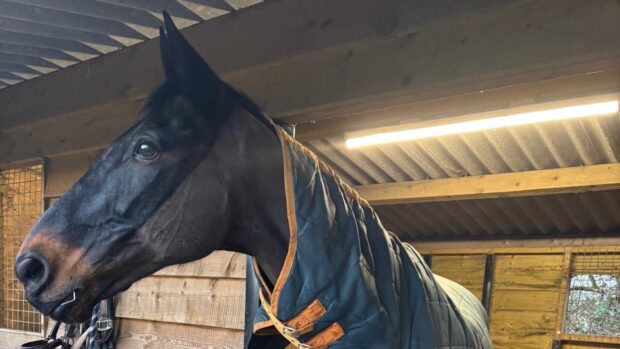Vets are urging owners to take action now to minimise firework trauma, as they fear Covid regulations may mean more unregulated displays.
The British Veterinary Association (BVA) is urging owners who are worried about their animals’ welfare to take steps to avoid injury and distress between now and December.
The advice comes as vets say they are concerned there may be an increase in unregulated garden fireworks this year as official displays are limited by Covid-19 restrictions.
“Many animals have more acute hearing than humans, so the loud bangs and whistles — which at 150 decibels can be as loud as the noise from a jet engine — can cause significant distress and fear and lead to the development of phobia responses,” A BVA spokesman said.
“Vets see first-hand the impact of firework-related distress in pets, livestock and horses at this time of year. In a survey conducted by BVA in 2018, around one in 14 vets across the country reported seeing animals with firework-related injuries over the previous year, with equine vets significantly more likely to report such cases (19%). By far the most commonly reported cases were self-injuries caused by fireworks-related anxiety, such as fractures in horses that had bolted from their fields or tooth injuries to dogs from chewing furniture.”
The BVA pointed out that there are more concerns than noise; firework debris can also cause issues.
Continues below…

‘Missed the point, again’: Disappointment at government’s response to fireworks inquiry *H&H Plus*

Subscribe to Horse & Hound magazine today – and enjoy unlimited website access all year round

16 useful tips to help horses cope with fireworks

Public urged not to let off fireworks during weekly ‘clap for carers’
‘Everybody wants to show support for the NHS because they’re doing a fantastic job – but there are better ways
BVA senior vice-president Daniella Dos Santos said: “The loud noises and bright flashes from fireworks can be extremely traumatic for animals, from dogs, cats and rabbits to livestock, horses, wildlife and zoo animals. While Covid-19 restrictions may lead to the cancellation of official displays, we are worried about a rise in the number of backyard celebrations.
“We’d encourage owners and keepers to consult with their vet as far in advance as possible to discuss management and treatment options, which may include noise desensitisation techniques.
“With professional input and owner commitment and patience, a phobia of fireworks can be effectively treated with appropriate behaviour-modification techniques.
“Even if you don’t expect your pet to be anxious please consider staying close at hand on the noisiest evenings, providing background noise when fireworks are going off and, most importantly, staying calm yourself so your animal is reassured.”
The British Horse Society has a list of tips to help horses cope with fireworks.
Horse & Hound magazine, out every Thursday, is packed with all the latest news and reports, as well as interviews, specials, nostalgia, vet and training advice. Find how you can enjoy the magazine delivered to your door every week, plus options to upgrade to access our H&H Plus online service which brings you breaking news as it happens as well as other benefits.




